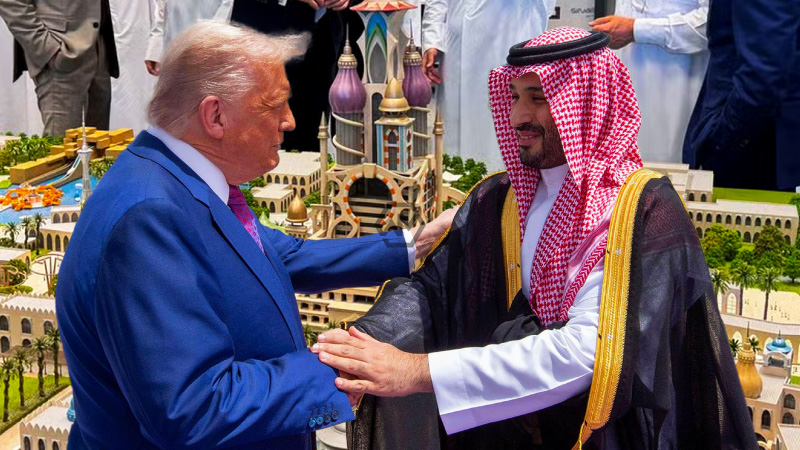- President Trump launches a four-day Gulf tour focused on economic agreements and investments.
- Saudi Arabia pledges $600 billion in investments, aligning with Vision 2030.
- Defense deals, AI tech collaborations, and regional stability talks dominate the agenda.
President Donald Trump arrived in Riyadh, Saudi Arabia. He initiated a four-day Gulf tour aimed at securing substantial economic agreements. The visit is his first major foreign trip of the second term. It focuses on attracting Gulf investments totaling $1 trillion over the next four years.
Alongside economic talks, Trump is negotiating a $100 billion defense package. This includes C-130 aircraft, missile defense systems, and other advanced weaponry.
Trump Courts Gulf Investments in Landmark Saudi Visit
In Riyadh, President Trump is leveraging his influence to attract substantial economic investments from Gulf states. The Saudi-American Investment Forum is set to draw business leaders and government officials. They will discuss multi-billion-dollar deals in sectors ranging from AI and green energy to infrastructure development. Saudi Arabia’s $600 billion commitment is seen as a cornerstone of its Vision 2030 plan. It aims to diversify the economy away from oil dependency.
Beyond economic deals, the U.S. is positioning itself as a key defense partner in the region. Trump’s proposed $100 billion arms package includes transport aircraft, missile defense systems, and Abrams tanks. The deal aims to bolster Saudi Arabia’s defense capabilities amid ongoing regional conflicts, particularly in Yemen and Gaza.
The high-profile delegation accompanying Trump includes Tesla’s Elon Musk, Citigroup CEO Jane Fraser, and BlackRock’s Larry Fink. This signals U.S. interest in expanding tech and finance collaborations in the Gulf. The forum will also address emerging sectors like AI and quantum computing. Musk is expected to discuss Tesla’s autonomous tech.
Regional security remains a key agenda item. Trump is considering a detour to Turkey for potential peace talks between Russia and Ukraine. This emphasizes U.S. diplomatic leverage in resolving geopolitical conflicts. Meanwhile, Saudi Arabia is seeking U.S. support for its strategic initiatives in Yemen and Gaza, where tensions continue to simmer.
Trump’s Gulf tour underscores a strategic pivot towards economic alliances. It positions the U.S. as a preferred partner in the region amid evolving global dynamics.
“This is not just about investment but about reshaping regional alliances through economic diplomacy,” said a senior U.S. official accompanying the delegation.



